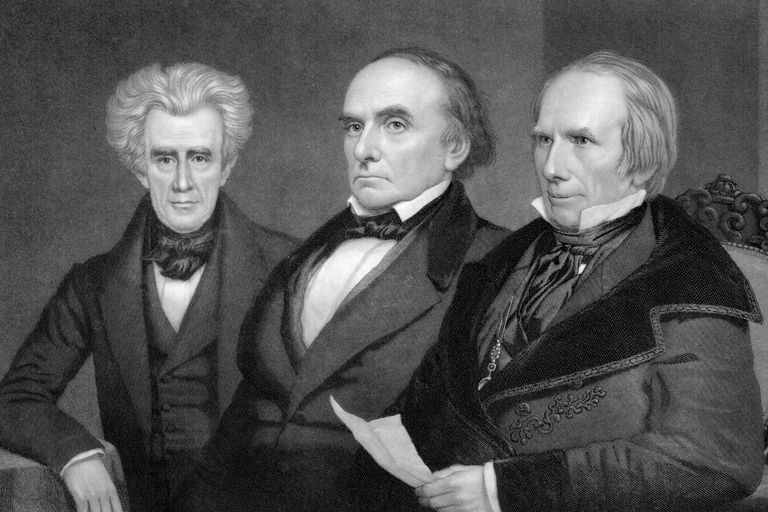
The Devil, in this case, being politics as we know it today, practiced yesterday.
In 1842, Daniel Webster was John Tyler’s Secretary of State. Among the issues he had to deal with was a lingering dispute – since the Revolutionary War – between the US and Britain over the border between Maine and Canada. One obstacle to a settlement was the maximalist demands of Maine itself, whose senators would be voting on the treaty, and whose people would have to be relied on not to make trouble by trying to settle territory ceded to Britain and precipitating a war.
Parallel to the negotiations, Webster helped arrange for federal funds to secretly underwrite a public relations campaign in Maine in support of the proposed settlement. The treaty was eventually approved by the Senate by a vote of 39-9.
However, later, in 1846, Charles Jared Ingersoll, a Democratic congressman from Philadelphia, went on a tirade in the House against the treaty. He was particularly incensed that Webster had settled the Maine boundary without also settling the Oregon boundary. He also revived some old charges from years before. Webster, back in the Senate and rising to the bait, fired back ferociously. “He was not known for his invective, but here, it was reported, the invective exceeded that of Cicero, Burke, and Sheridan, to say nothing of Randolph, Clay, and Benton.”
Ingersoll figured he had hit a nerve.
“Where there was so much wrath, there must be guilt, so he now pursued his investigation into the State Department. There he discovered the expenditures from the secret service fund [this is not the Secret Service we know today, founded in 1865 -ed.]. Returning to the House, he charged Webster with misappropriation of funds and corruption of the press, and demanded an investigation. The refusal of President James K. Polk to break the seal of secrecy on the contingency fund, combined with Tyler’s testimony defending Webster and assuming full responsibility for the expenditures, doomed the project.”
It doomed Ingersoll, but in fact, Webster had been using clandestine taxpayer funds to run a domestic PR campaign in support of a treaty he negotiated. This may not rise quite to the level of leaking information to the press in order to use press stories to obtain surveillance warrants, but it is kinda of deep-statish.
Back in 1842, Webster was fighting off another kind of allegation all too familiar.
“In January 1842, George Prentice had published in the Louisville Daily Journal an editorial, ‘Anecdote of Daniel Webster,’ that gave a lurid account of [Webster’s] seduction of the wife of a poor clerk in his department. She had come to him asking employment as a secretary. After sending her to an adjoining room to provide a specimen of her handwriting, Webster came in, closed the door, and pounced on her… She screamed and clerks rushed in, thus forestalling ‘the old debauchee.’ Affidavits from Washington, one of them filed by Webster himself with a local magistrate, forced Prentice to retract the story…”
The story never found any real audience then or now, and he always blamed Clay for having planted it. But the fact that he was forced to deny it seemed to stain him all by itself.
Plus ça change.



